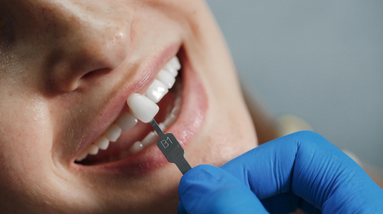
Prosthodontics is a branch of dentistry that involves the diagnosis, treatment, and management of dental and oral health problems related to missing or damaged teeth and other oral structures. Prosthodontists are dental specialists who have completed additional education and training in prosthodontics.
Prosthodontic treatment involves the use of various dental prostheses to restore or replace missing or damaged teeth, improve oral function and esthetics, and enhance the patient’s quality of life. Some common prosthodontic treatments include:
Prosthodontic treatment can also involve the use of advanced techniques and materials to improve the esthetics of the teeth and gums, such as porcelain veneers, dental bonding, and tooth-colored fillings.
Prosthodontic treatment is important for patients with missing or damaged teeth, as it can help improve their oral function, esthetics, and overall quality of life. Prosthodontists work closely with general dentists and other dental specialists to provide comprehensive care for patients with complex dental and oral health problems.